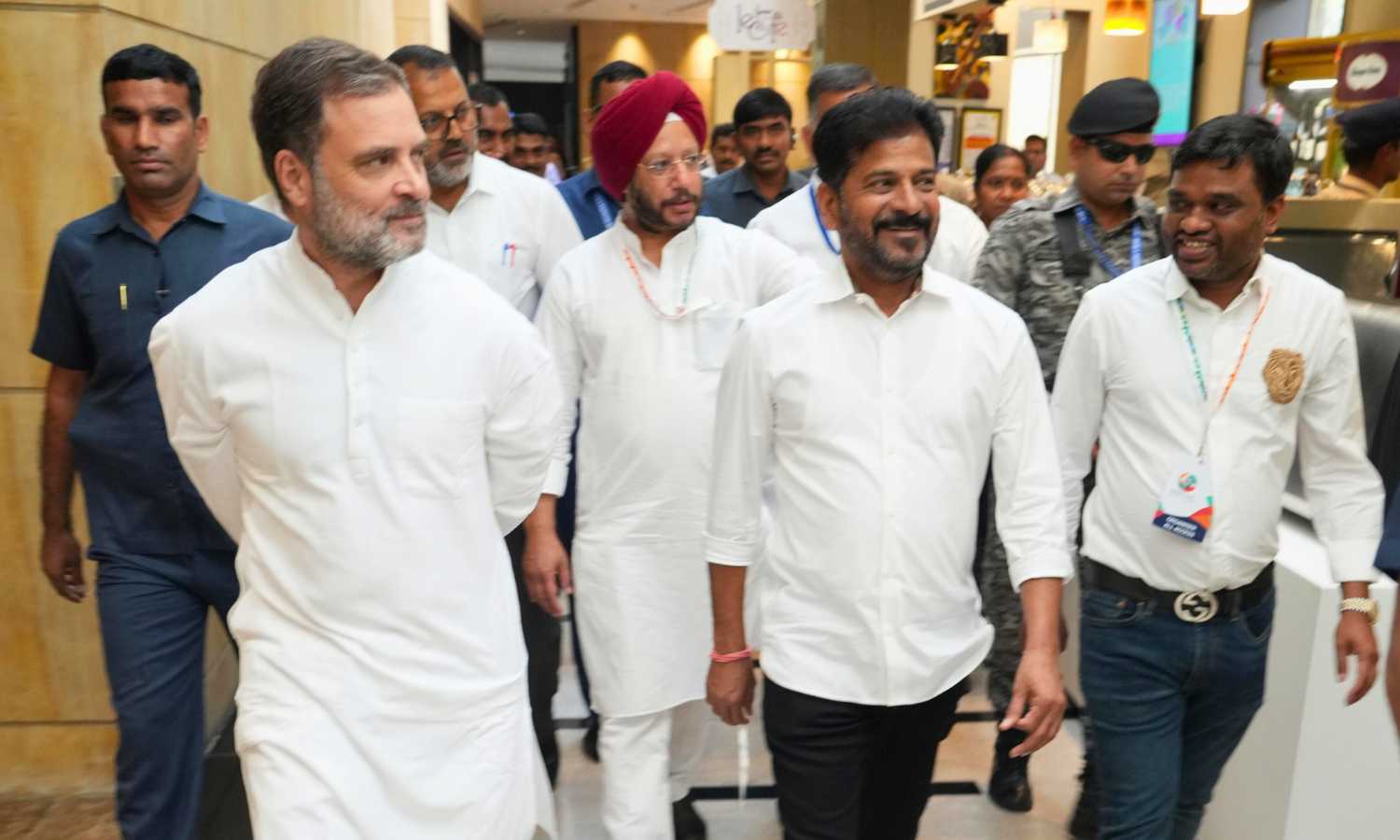Hyderabad: Senior Congress leader and Leader of Opposition Rahul Gandhi on Saturday called for a fundamental shift in democratic politics, urging political movements around the world to move away from fear and hatred towards a culture of listening, empathy, and love.
Speaking at the Bharat Summit 2025 Plenary Session, Gandhi said that democratic politics had undergone profound changes over the past decade, as concentrated capital and media control reshaped political engagement. “The rules that applied a decade ago no longer work. In this new politics, the opposition is not merely challenged but crushed,” he said.
Gandhi recounted the experience of the Bharat Jodo Yatra, a 4,000-kilometre walk from Kanyakumari to Kashmir, undertaken to reconnect with the people after traditional avenues of opposition were compromised. Reflecting on the lessons of the Yatra, he said, “Our opponents have a monopoly on anger and fear—we cannot fight them on that ground. During the Yatra, I discovered the transformative power of listening. I spoke less and listened more, and that changed everything.”
He shared a moving account of a woman who joined the Yatra despite facing domestic violence, illustrating the depth of people’s struggles and the importance of true engagement. He stressed that opposition movements must shift away from assuming they have all the answers. “It is the people who know what needs to be done—and we must listen,” he said.
Gandhi’s second key lesson was the political power of love. “Until the Yatra, I had never used the word ‘love’ in politics. But once I did, people began to respond. Love and affection can disrupt hate more powerfully than any argument,” he observed.

Concluding his speech, Rahul Gandhi said that although disagreements on policy would always exist, the Congress party must view politics through a lens of love, affection, and deep listening, contrasting sharply with opponents who operate through anger and fear. He expressed confidence that the Bharat Summit would help generate new ideas for a more humane politics in India and around the world.
In strong support of Gandhi’s vision, Lars Klingbeil, Senior Leader of Germany’s Social Democratic Party, said the challenges discussed at the Bharat Summit resonated globally. He warned that the international rules-based order was under threat, with growing attempts to replace the ‘rule of law’ with the ‘rule of might’. “These developments must stop,” Klingbeil said.
Wayne Swan, National President of the Australian Labor Party and former Deputy Prime Minister of Australia, echoed the concerns. He emphasised the critical role of public policy in advancing economic equality, noting that hyper-individualism and the influence of oligarchs were making it increasingly difficult to ensure fairness. “Party activism has never been more important, particularly in the face of rising fascism and the concentration of power among oligarchs in countries like the United States,” he added.
Telangana Chief Minister A Revanth Reddy, addressing the international delegates, highlighted his government’s progressive welfare policies, including the implementation of India’s largest farmer debt waiver of ₹20,674 crore and the provision of over ₹20,000 crore annually in agricultural subsidies. He said Telangana’s women entrepreneurs were now competing with leading industrialists such as Adani and Ambani.
Deputy Chief Minister Mallu Bhatti Vikramarka observed that the presence of over 450 international delegates at the Bharat Summit had created an ideal platform for sharing ideas on justice and peace, aligning with Rahul Gandhi’s vision of NYAY (justice).

In a historic outcome of the Summit, Congress leaders and delegates from over 100 countries adopted the Hyderabad Resolution—a 44-point agenda focused on ‘Delivering Global Justice’. The Resolution reaffirms a collective commitment to the principles of freedom, equality, justice, and solidarity. Major points include reshaping the global economic paradigm, advancing environmental justice, promoting gender equality and social inclusion, defending democracy and social justice, working for peace and human security, and reforming global governance institutions.
The greatest and most powerful disruption to hatred is the idea of love and affection.
While we may disagree on policy matters, the framework that we use and the lens we use for our politics must be love, affection and listening to the people that we represent. pic.twitter.com/jF0BflACwC
— Rahul Gandhi (@RahulGandhi) April 26, 2025

